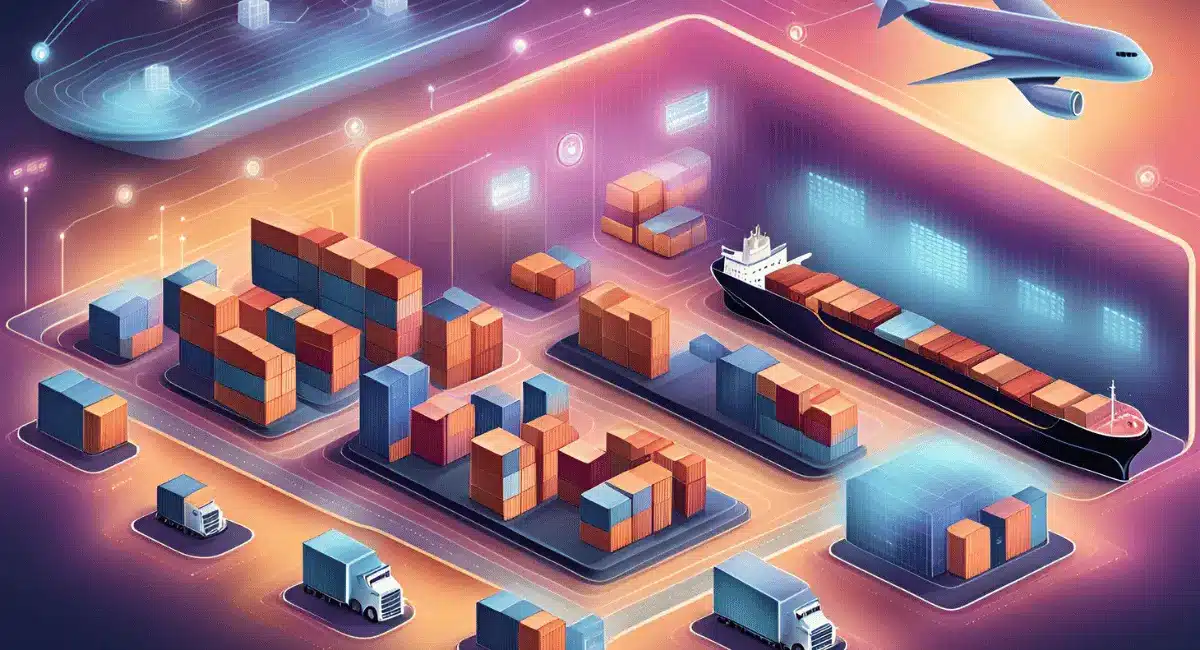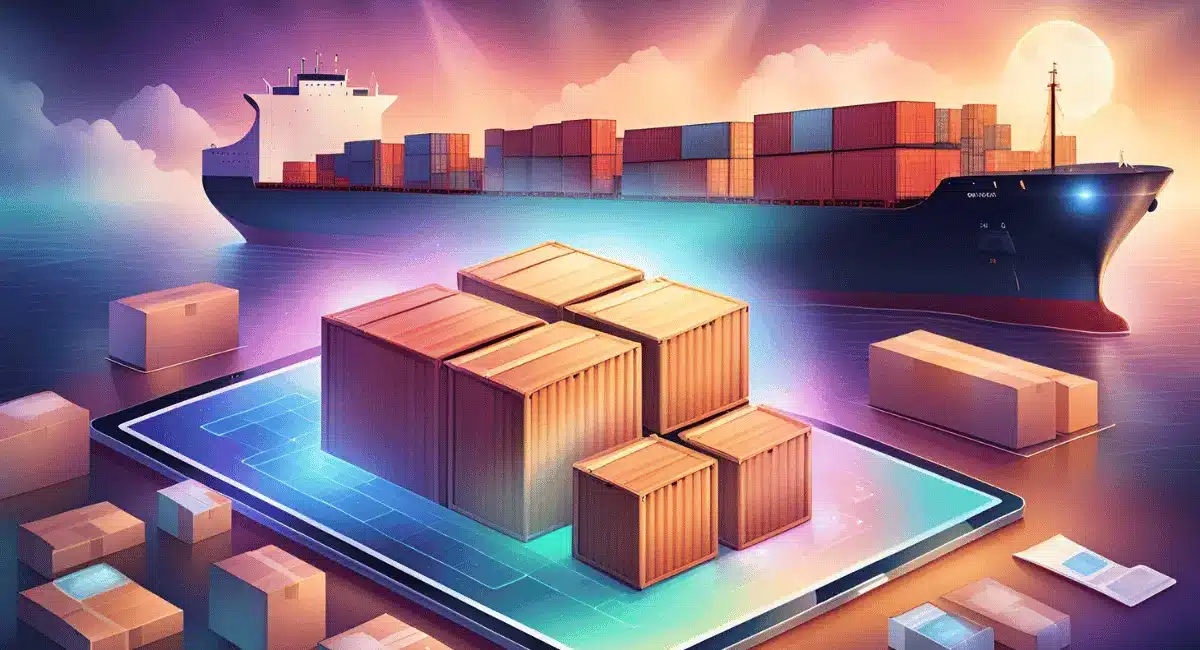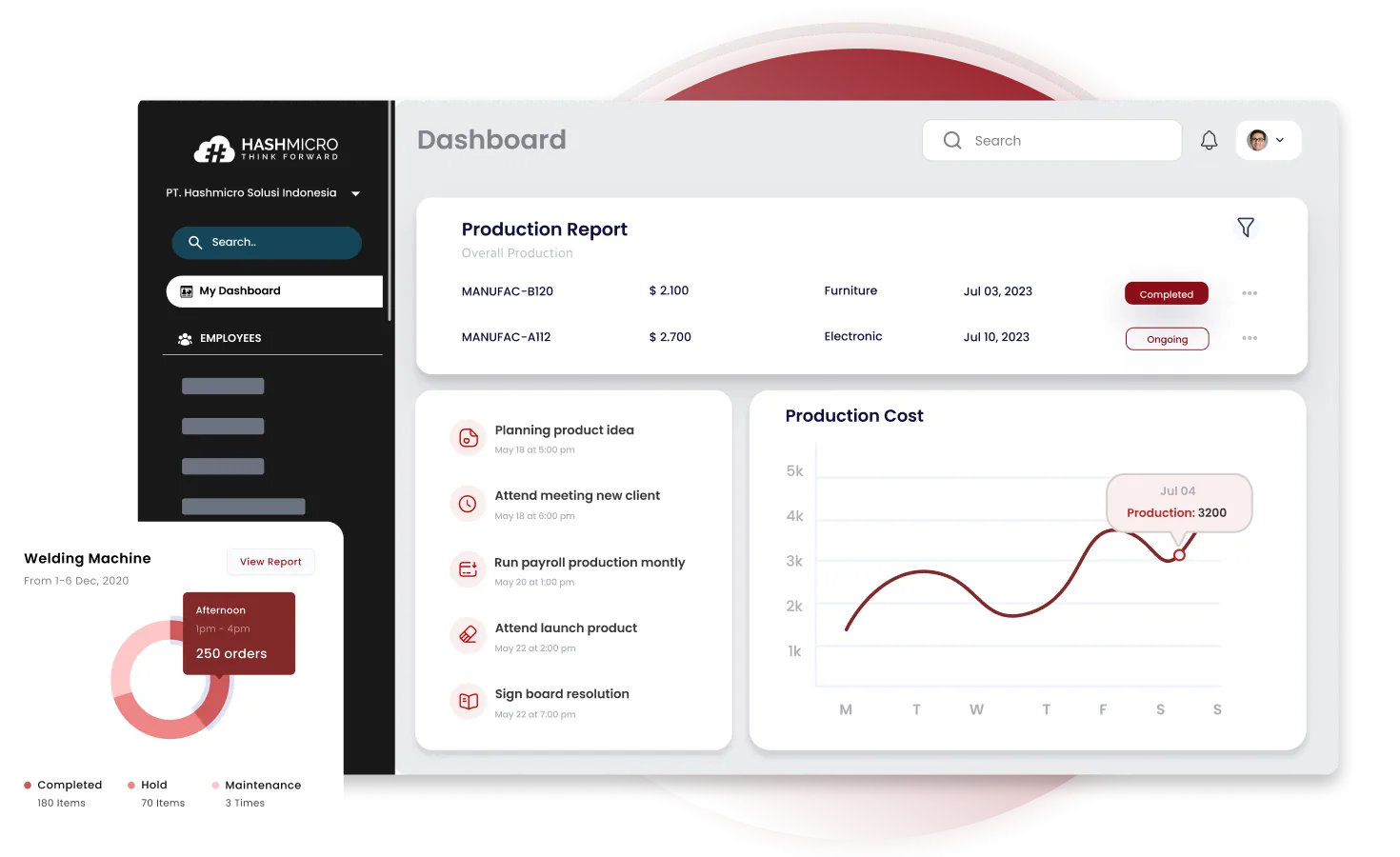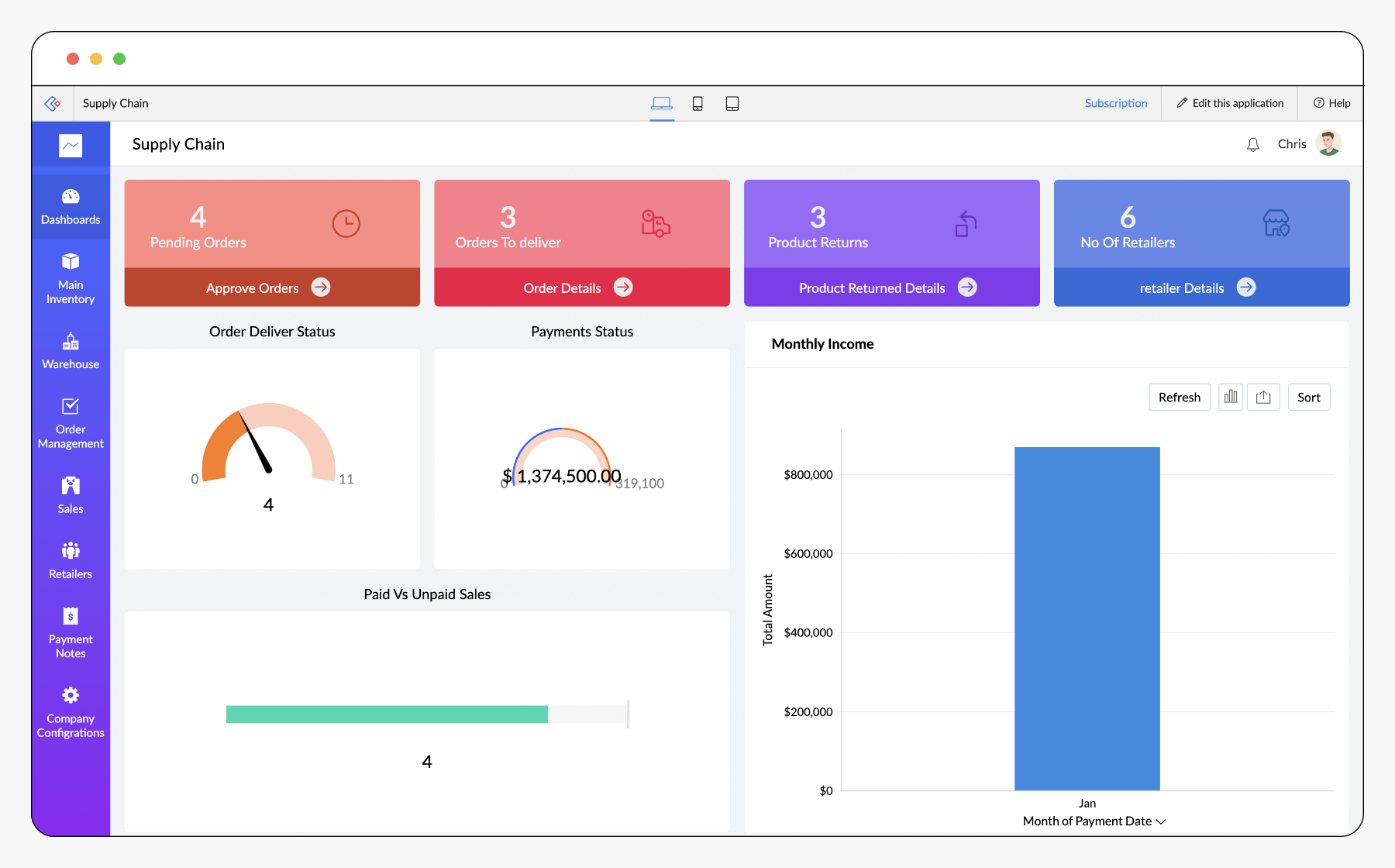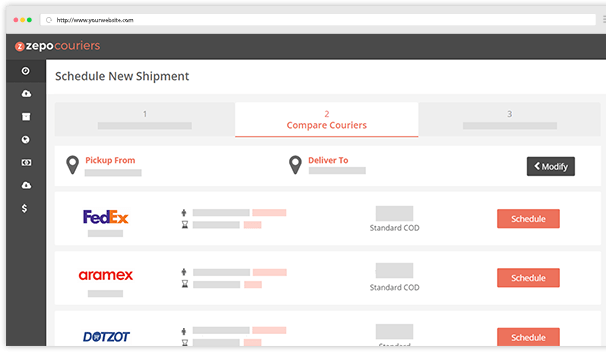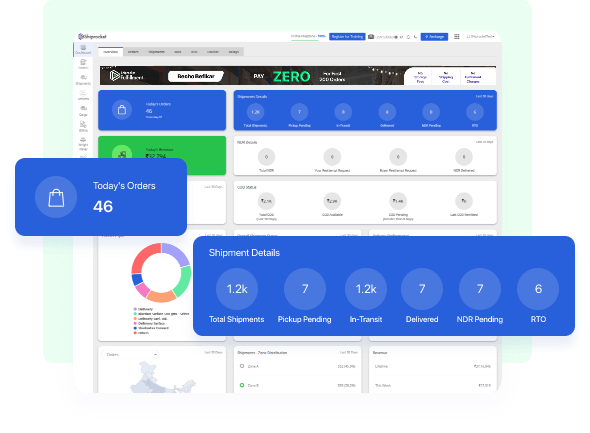As global trade continues to expand, the demand for efficient and reliable transportation of goods has skyrocketed. This has paved the way for the shipping industry to play an essential role in connecting businesses across the globe.
As the shipping industry faces increasing demands, businesses are adopting ERP software to streamline their operations. HashMicro ERP software, a leading solution in Singapore, helps automate the shipping process, improving efficiency and effectiveness across the board.
Are you curious about how ERP software works for your business? This article will explore the relevant and important information about ERP for shipping software.
Key Takeaways
|
Table of Content:
Table of Content
What is ERP for Shipping Software?
ERP for Shipping software refers to a broad system designed to streamline and automate various operations within the shipping industry. It integrates multiple functions, enabling shipping companies to effectively manage their day-to-day activities.
One of the key features of this shipping system is automation. The software automates repetitive and time-consuming tasks, such as order processing, inventory management, and documentation.
By eliminating manual intervention, it reduces human errors and accelerates processing time, leading to faster and more efficient operations. Another important aspect of ERP for shipping software is its ability to provide a simplified process.
It offers a unified interface that enables users to access and manage various aspects of the shipping business from a single platform. Those functions simplify workflows and promote collaboration among different departments, enhancing communication and information sharing.
Furthermore, ERP for shipping software facilitates real-time data visibility and analytics. It allows shipping companies to monitor and track shipments, inventory levels, financial transactions, and customer information in real-time.
This software company empowers decision-makers with valuable insights and enables them to make informed choices to optimize operations, improve customer service, and drive business growth.
Hashy AI Fact

Need to Know
AI enhances ERP by automating business operations and improving decision-making. AI ERP for the shipping industry streamlines logistics and fleet management to help shipping businesses operate more efficiently.
Request a free demo today!
Why Use an ERP for the Shipping Industry?
The main reason why people are using ERP for the shipping industry is because it streamlines many business processes. But, there are lots of other benefits businesses can gain by implementing ERP software. Here are several reasons why you need to use an ERP for the shipping industry.
1. Securely accessing vendor websites
Collaboration with vendors and suppliers plays a critical role in ensuring smooth operations and timely delivery of goods. Then, ERP application provides a secure platform for shipping companies to interact and exchange information with their vendors, fostering a more efficient and transparent supply chain.
The software employs robust security measures to protect sensitive information, such as vendor contracts, pricing details, and order specifications. Additionally, an ERP system streamlines the procurement process by integrating vendor websites directly into the system.
This eliminates the need for manual data entry and reduces errors that can occur during the manual transfer of information. Those functions enable shipping companies to monitor and analyze vendor performance, track order statuses, and manage vendor relationships more effectively.
2. Enhance inventory management and stock maintenance
Efficient management of inventory is crucial for shipping companies to ensure smooth operations, optimize resources, and meet customer demands. As a result, an ERP solution provides powerful tools and functionalities that contribute to effective inventory and stock management.
The software offers real-time insights into inventory levels, locations, and stock movements across multiple warehouses or distribution centers. Moreover, an ERP system simplifies stock maintenance through automation and streamlined processes. It provides features such as automated reordering, stock tracking, and inventory forecasting.
Additionally, a shipment system facilitates effective stock rotation and tracking. It enables the implementation of barcode or RFID technologies for efficient inventory tracking, picking, and packing processes.
These capabilities allow shipping companies to set optimal reorder points, automate purchase orders, and schedule replenishments based on demand patterns and lead times.
3. Easier transportation maintenance
Effective management and maintenance of transportation assets are critical for shipping companies to ensure smooth operations, minimize downtime, and maximize resource utilization.
The software enables shipping companies to maintain a database of their transportation assets, including vessels, trucks, containers, or any other equipment. It allows for real-time tracking of asset locations, maintenance schedules, and usage history.
Additionally, an ERP system facilitates proactive maintenance through automated alerts and notifications. It can be configured to generate automatic reminders for regular inspections, preventive maintenance, or component replacements based on predefined time or usage thresholds.
These proactive alerts help shipping companies stay ahead of potential issues, allowing them to take preventive measures and avoid costly repairs or replacements.
Furthermore, an ERP system enables efficient inventory management for the transportation of spare parts and supplies. This ensures that the right spare parts and supplies are available when needed, minimizing the downtime associated with waiting for replacements.
4. Real-time tracking of shipments
One of the primary advantages of using an ERP system for real-time tracking of shipments in the shipping industry is enhanced visibility. The software integrates data from multiple sources, such as GPS tracking devices, logistics partners, and internal systems, into a centralized platform.
That consolidated view allows shipping companies to monitor the movement of shipments in real time, regardless of their location or transportation mode. By having instant access to accurate information, businesses can proactively address any potential delays or issues.
5. Reduce shipping and operational costs
In the shipping industry, reducing costs is a constant challenge faced by businesses aiming to maintain profitability and competitive advantage. Implementing an ERP system offers compelling reasons to address this struggle effectively.
One of the primary ways an ERP system helps reduce costs in the shipping industry is by optimizing operational efficiency. By automating routine tasks, reducing paperwork, and eliminating duplication of efforts, an ERP system increases operational efficiency, saving time and resources.
Moreover, an ERP system facilitates improved inventory management. This enables businesses to optimize inventory levels, avoid overstocking or stockouts, and reduce carrying costs.
In addition, an ERP system supports strategic decision-making by providing accurate and timely financial information. With better financial visibility, shipping companies can identify areas where costs can be reduced, such as eliminating non-value-added processes.
6. Improve customer experiences
An ERP system supports effective complaint resolution and post-sales support. The software allows shipping companies to record and track customer complaints, ensuring that they are promptly addressed and resolved.
By maintaining a record of customer interactions and resolutions, businesses can identify recurring issues, implement preventive measures, and continuously improve their services. This commitment to resolving customer concerns fosters trust, loyalty, and positive word-of-mouth, leading to enhanced customer experiences.
7. Scalable sales and marketing
One of the primary ways an ERP system helps overcome the struggle of scalable sales and marketing in the shipping industry is by providing a centralized customer relationship management (CRM) platform.
This CRM module enables shipping companies to maintain a comprehensive database of customer information, interactions, and preferences. By capturing and analyzing customer data, businesses gain valuable insights into customer behavior, preferences, and buying patterns.
Moreover, an ERP system facilitates effective lead management and tracking. It allows for lead scoring, assigning leads to sales representatives, and monitoring the progress of each lead.
Additionally, an ERP system supports coordinated and targeted marketing campaigns. The software offers features such as email marketing, campaign management, and analytics. Businesses can optimize marketing efforts, allocate resources more efficiently, and identify the most effective marketing channels for reaching their target audience.
5 Best ERP for Shipping Software
If you are looking for a comprehensive ERP solution, here are several lists of the best ERP software in Singapore for the shipping industry to implement in your business.
1. HashMicro
Enhance your shipping business operations with the comprehensive and cutting-edge software solution provided by HashMicro.
Growing as a leading provider of ERP software, HashMicro offers a diverse range of modules tailored to streamline your business processes, making it an ideal choice for the shipping industry.
With their state-of-the-art ERP system, you can seamlessly integrate all aspects of your business, from order management to inventory tracking, and from shipment consolidation to last-mile delivery.
HashMicro understands that each step in the shipping process is crucial, and they provide you with the tools to streamline your operations efficiently. What sets HashMicro’s ERP for shipping software apart is its remarkable advantages, which go beyond the standard offerings.
With features like Internet of Things (IoT) integration, mobile applications enhanced with GPS functionality, and support for PEPPOL (Pan-European Public Procurement Online), your business can tap into cutting-edge technologies and innovative solutions to further enhance its operations.
With up to 70% funding support from the CTC Grant, you can confidently accelerate your digital transformation journey and implement HashMicro’s advanced shipping ERP software.
Choose HashMicro as your trusted partner to unlock the full potential of your shipping business, and experience the power of advanced software tailored specifically to meet your needs.
You may also try the free demo to see the full dashboard.
2. Zoho
Efficiency is at the core of Zoho’s ERP software, empowering businesses to seamlessly manage inventory, procurement, planning, and forecasting.
With shipping tracking capabilities and advanced multi-warehouse management, Zoho ensures smooth and well-coordinated logistics, enabling you to deliver goods on time and with the utmost precision.
What truly sets Zoho apart is its commitment to innovation. By harnessing the power of emerging technologies, enables real-time data collection and analysis, allowing you to make informed decisions and respond promptly to evolving market demands.
3. Zepo Couriers
Zepo Couriers takes data management seriously, recognizing the significance of accurate and up-to-date information in the shipping industry.
With their advanced analytics and reporting capabilities, you gain valuable insights into your operations, enabling you to identify trends, optimize routes, and make data-driven decisions.
By harnessing the power of data, you can enhance your business strategies and stay ahead of the competition.
4. ShipRocket
One of the standout features of ShipRocket is its intuitive and user-friendly interface. With its clean and modern design, navigating through the system becomes a breeze, allowing your team to adapt quickly and maximize productivity.
From warehouse management to real-time tracking, every feature is designed with the user in mind, ensuring that you can easily access the information you need and make informed decisions.
5. ShipToTrack
In addition to its powerful features, ShipToTrack offers seamless integration with existing systems and easy scalability. Whether you’re a small shipping startup or a well-established enterprise, their ERP solutions can adapt to your evolving needs, providing a scalable platform for growth and expansion.
This flexibility ensures that you can focus on what matters most – your business – while ShipToTrack takes care of your shipping operations.
Conclusion
In conclusion, the shipping industry is experiencing significant growth and evolution. To meet the increasing demands, shipping companies are turning to Enterprise Resource Planning (ERP) software to optimize their business processes.
It provides benefits such as secure vendor interactions, enhanced inventory management, easier transportation maintenance, real-time tracking of shipments, reduced costs, improved customer experiences, and scalable sales and marketing.
If you want the best ERP experience, adopt the power of HashMicro’s cutting-edge ERP solution tailored specifically for the shipping industry. You can also get the chance to reduce the price by up to 50% discount by applying for PSG Grant.
Unlock the full potential of your shipping business with HashMicro. Choose excellence today! If you want to get a free demo of our tour product, click here!






